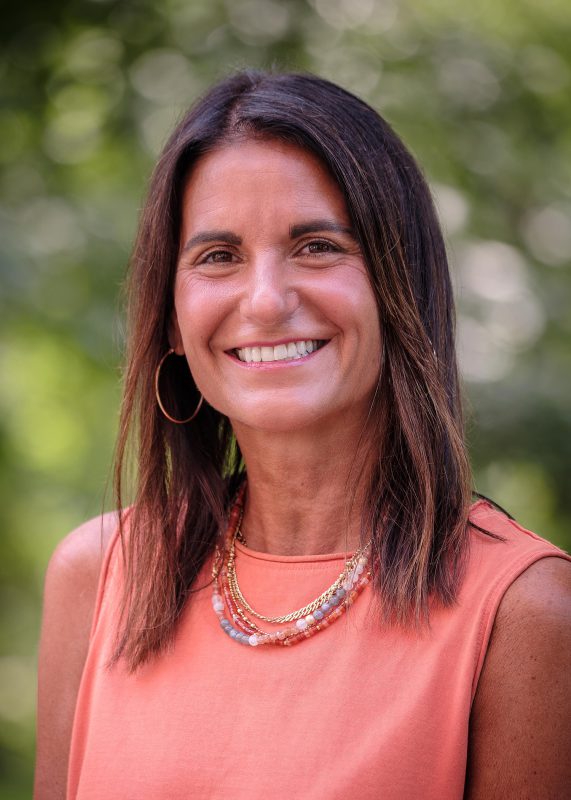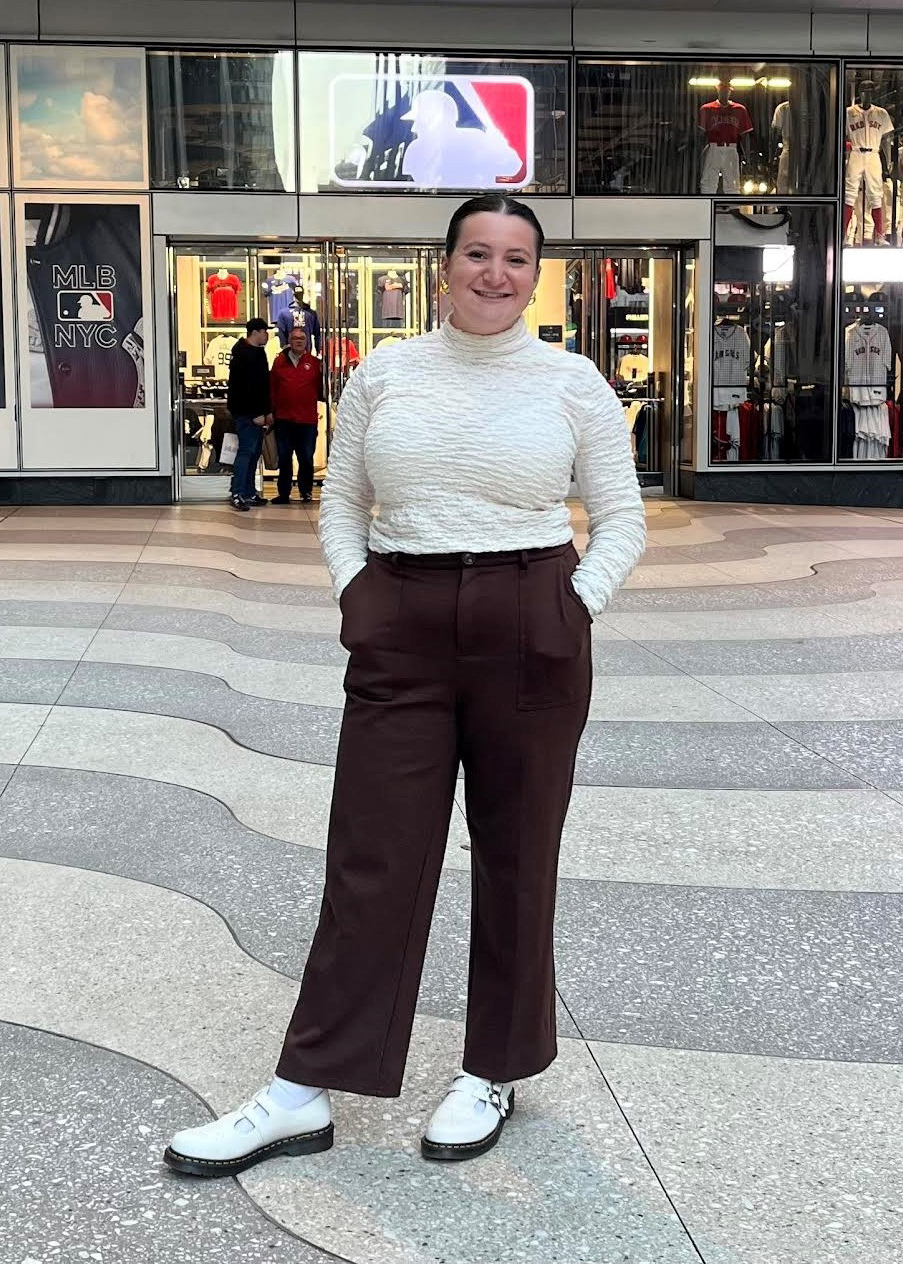Shannon Milan ’16 returned to Kalamazoo College this month to serve as its director of admission. In this role, she collaborates with colleagues to shape strategies and long-term goals for the College’s enrollment while making personal connections and demonstrating a passion for student success and engagement.
Shannon formerly served the College as an admission counselor and assistant director of admission from 2019–2022. She’s back after working for Portage Public Schools as a school psychologist. Recently, we sat down with Shannon to talk about her background and goals for admission at K.
Question: How did you get involved in college admissions as a profession? Tell us about your career path and why you have decided to return to K.
Answer: After graduating from Kalamazoo College with a degree in psychology, I pursued a master’s degree in school psychology at Grand Valley State University, eager to delve deeper into educational psychology. Upon completing my graduate studies, I was drawn to an exciting opportunity in admissions at Kalamazoo College. The prospect of returning to my alma mater and contributing to the college community was incredibly appealing.
During my initial tenure in admissions, I relished the chance to work with students from around the globe, helping them discover the unique opportunities Kalamazoo College offers. This experience was both rewarding and transformative, allowing me to witness firsthand the impact Kalamazoo College has on students.
Seeking new challenges, I transitioned to a role as a school psychologist at a public high school. While I deeply valued the work and the relationships I built with students, Kalamazoo College remained close to my heart. The institution that had significantly shaped my own educational journey continued to inspire me.

When the opportunity arose to return to Kalamazoo College as the director of admission, I knew I had to seize it. The chance to come back to the place that had such a profound effect on my life and to give back by supporting and guiding future students was an opportunity I couldn’t pass up. I am excited to, once again, be part of the Kalamazoo College community and to play a role in helping students find their own paths to success, just as Kalamazoo College did for me.
Q: What made K special for you as a student and now as an admission professional?
A: As a first-generation, non-traditional student, I was amazed at how I was instantly brought into the fold and accepted for the person and learner I was and would become. From my first visit to the campus to the day I graduated, I was surrounded by staff and faculty who guided and supported me in every part of my journey at K. I will never forget my classmates and the faculty at K. Still, more importantly, I will never forget the way they made me feel—welcomed and accepted.
Now, as the director of admission, having taken a non-traditional career path, I am delighted to find that the same tight-knit community that embraced me as a student has warmly welcomed me back as a colleague. The sense of belonging and acceptance I experienced as a student is just as strong today, reaffirming the enduring, supportive spirit of Kalamazoo College.
Q: What are your goals, short term and long term, for the Office of Admission?
A: This is a great question! I’ve been very excited to dive into goal-setting, and it’s wonderful to have an opportunity to narrow down my short-term and long-term goals. Short-term, my priorities include building relationships both on and off campus. This will help me gain a deeper understanding of our stakeholders and the current processes and challenges they face. Additionally, I aim to streamline operations and reassess our procedures to identify areas where we can enhance efficiency and achieve better outcomes. Another key focus will be on team development, including professional growth opportunities. I’m particularly excited about our upcoming fall retreat on September 10th, which will be a significant step in this direction!
Long-term, my goals include strengthening our culture of data-driven decision-making and exploring ways to expand it further. I also plan to build on the strong foundation that has already been laid to elevate Kalamazoo College’s profile, both nationally and internationally. This will involve strategic marketing and showcasing our students’ success stories.
Q: How do you like to connect with prospective students? What’s your approach?
A: I’m naturally curious and passionate about learning the stories of others. When working with prospective students, I always begin by asking questions to understand their interests, goals, and concerns. This is one of my favorite parts of the job—I’m continually inspired by the young adults I get to meet and engage with. Building trust and maintaining transparency are essential to me in these connections. I believe in being honest about both the challenges and the benefits of attending Kalamazoo College, ensuring that students have a clear and accurate picture of what life at K could be like.
Q: On a personal note, what are three things people might be surprised to learn about you?
A: After I graduated from Kalamazoo College, I had the joy of welcoming two nieces and a nephew to follow in my footsteps: Emiliana Renuart ’20, Maeve Crothers ’23, and August (Gus) Crothers ’26. In addition to my nieces and nephew, my brother-in-law, Justin Danzy, also graduated from K in ’16—fun fact: we both graduated in the same year! My great-uncle Norm Erway and great-aunt Wilma Fechter, who were both members of the Class of 1944, were married in Stetson Chapel.
My grandparents, Serafino “Gus” Gesmundo and Midge Gesmundo, met in the circus as trapeze artists, and together, as “The Flying Gesmundos,” they traveled the world.
Inspired by my grandparents, my husband and I attended a two-day trapeze school event together. It was incredibly fun, but I have to admit—I’m not sure the talent for flying through the air was passed down!



















